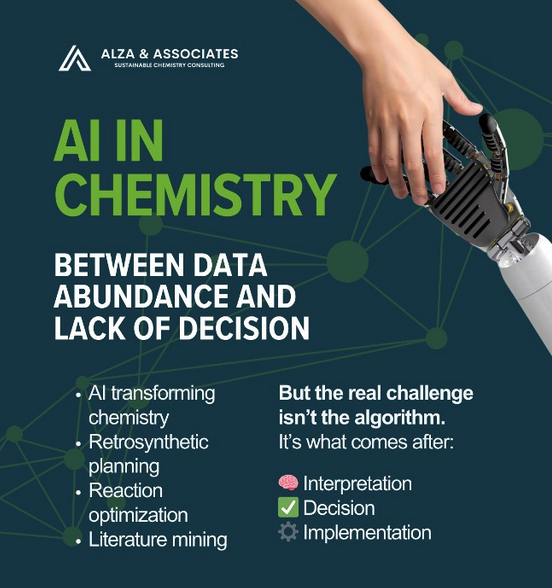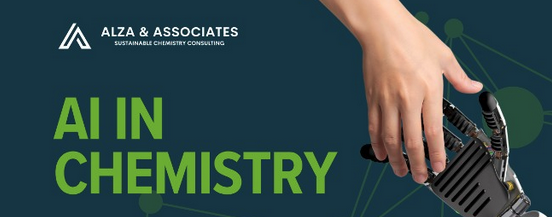Artificial Intelligence is transforming chemistry (there’s no doubt).
From retrosynthetic route generation to NMR pattern recognition, reaction optimization to automated literature mining, the breadth of applications is growing daily.
But in our experience, the real challenge isn’t the algorithm.
It’s what comes after:
Interpretation. Decision. Implementation.
Today’s laboratories generate more data than ever before. And yet, the human capacity to convert that data into meaningful insight remains the bottleneck.
Why?
Because AI in chemistry doesn’t eliminate complexity but restructures it.
We move from reaction mechanisms to neural networks, from synthetic routes to training sets, from error bars to confidence scores.
This evolution redefines the chemist’s role:
From executor to guardian of knowledge. From trial-and-error to strategic validation. From pipettes to platforms.
The hybrid lab of the future, that is data-rich, algorithmically assisted, and automation-ready, does not require less human expertise. It demands a new kind of expertise:
⚙️ One that bridges scientific intuition with data interpretation.
🤝 One that connects chemical thinking with computational logic.
At Alza & Associates, we don’t ask “how can AI replace chemistry?”
We ask: “What kind of chemistry becomes possible when humans and machines collaborate intelligently?”


